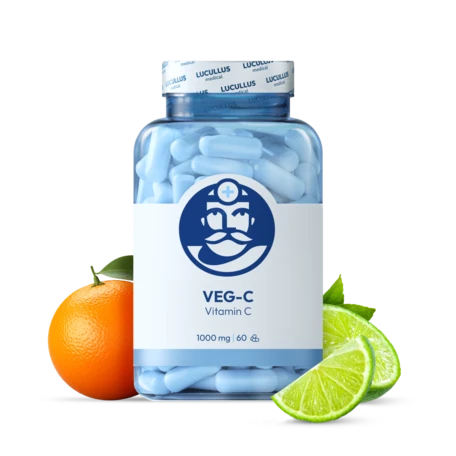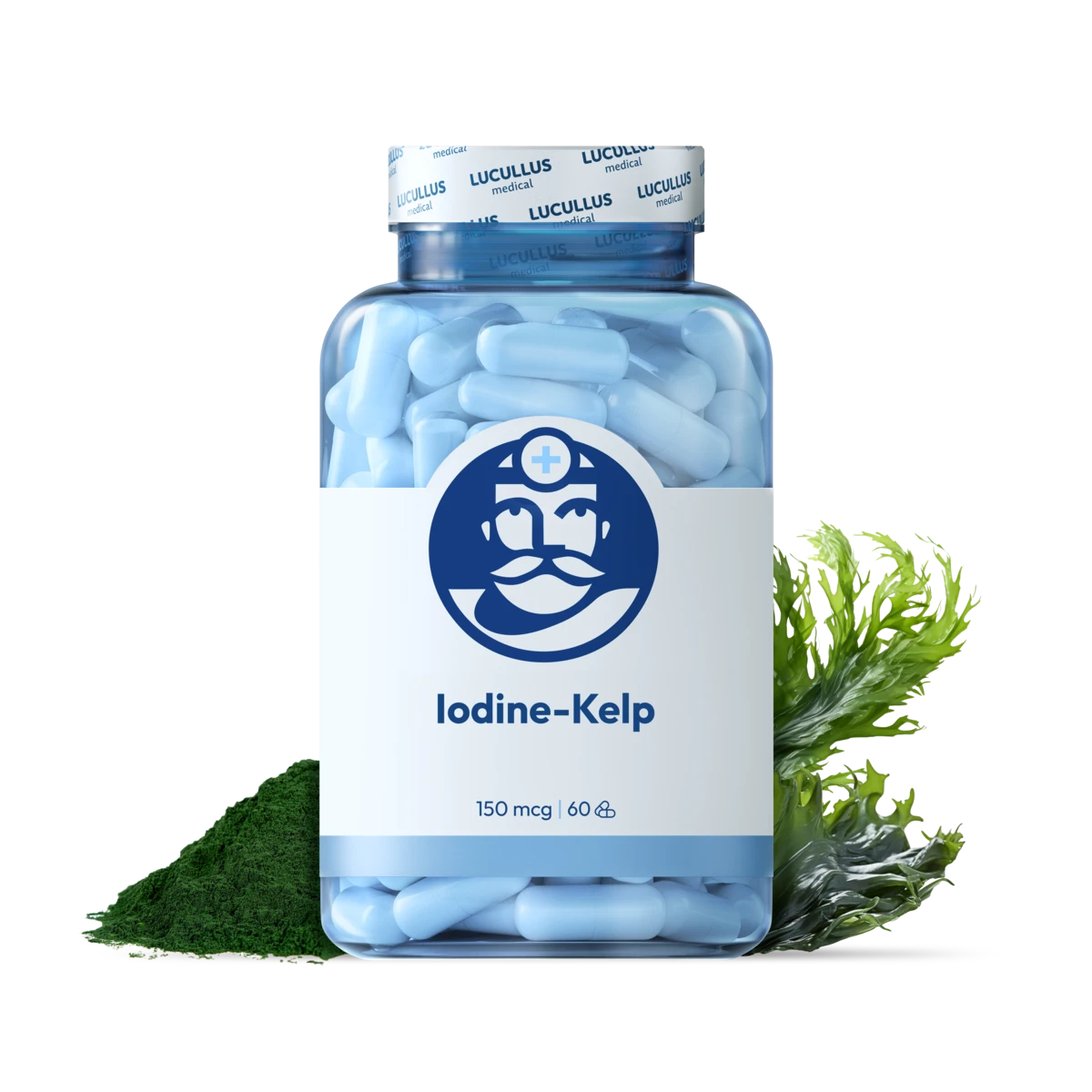
Is iodine a necessity? ... Iodine - Kelp
Iodine is a trace element, with an interesting role in health, which we associate with the thyroid gland. It occurs naturally in the marine environment and one of the richest natural sources of iodine is kelp seaweed, also known as "Bladderwrack, Norwegian Laminaria," which has been used in traditional medicine and cuisine for centuries. Kelp can absorb large amounts of iodine directly from the ocean. The body needs iodine to produce thyroid hormones, without which much more would not work ... our metabolism would not function properly, we would have little energy, and our minds would be dull.

Vitamin C - is it just a placebo?
Vitamin C is probably the most well-known and commonly used vitamin. From childhood, our mothers give us effervescent Celaskon in winter to protect us from colds and the flu. And even though recent studies may cast doubt on this, as there is no study that directly confirms that vitamin C protects against the flu and colds, there are facts that cannot be denied.

Zinc - The Fatigue Slayer
In addition to vitamins, enzymes, and various supplements, our body also needs so-called trace elements for 100% functionality. The term "trace" means that our body needs it only in small quantities. We need 10 mg of zinc daily, which is 37 times less than magnesium (375 mg). It might seem we're discussing a total non-entity. However, the opposite is true. Zinc affects more than 200 biochemical reactions in our body!

Choline and Inositol
Choline and Inositol - two words you probably haven't heard before. In the world of dietary supplements, however, they are an important combination of B vitamins, which are actually not vitamins. They are substances very similar to vitamins which support liver function and lipid metabolism - that is, fat metabolism. Choline is a water-soluble vitamin analogue. It is found in lecithin, which is common in many plant and animal tissues. Choline is a precursor for the neurotransmitter (i.e., carrier) acetylcholine - which is involved in many memory and muscle functions.

Cordyceps sinensis with an incredible life cycle
Have you heard about this fascinating fungus with its peculiar appearance and way of existence? The names „Chinese caterpillar, Himalayan gold or mushroom of longevity“ do not reveal much ...

B3 - example that food is medicine
Niacin was long considered a mere part of the diet until it was discovered that its deficiency causes skin, digestive, and mental problems known as pellagra. Doctor Goldberger proved that the cause of this disease is not an infection but a one-sided diet without vitamin B3. He conducted an experiment on himself and his colleagues, who consumed exclusively poor diets and began to show symptoms of pellagra. However, when they added nutrients rich in niacin to their diet, the symptoms disappeared. In 1937, niacin was isolated from the liver, confirming its importance and nutritional value.






























